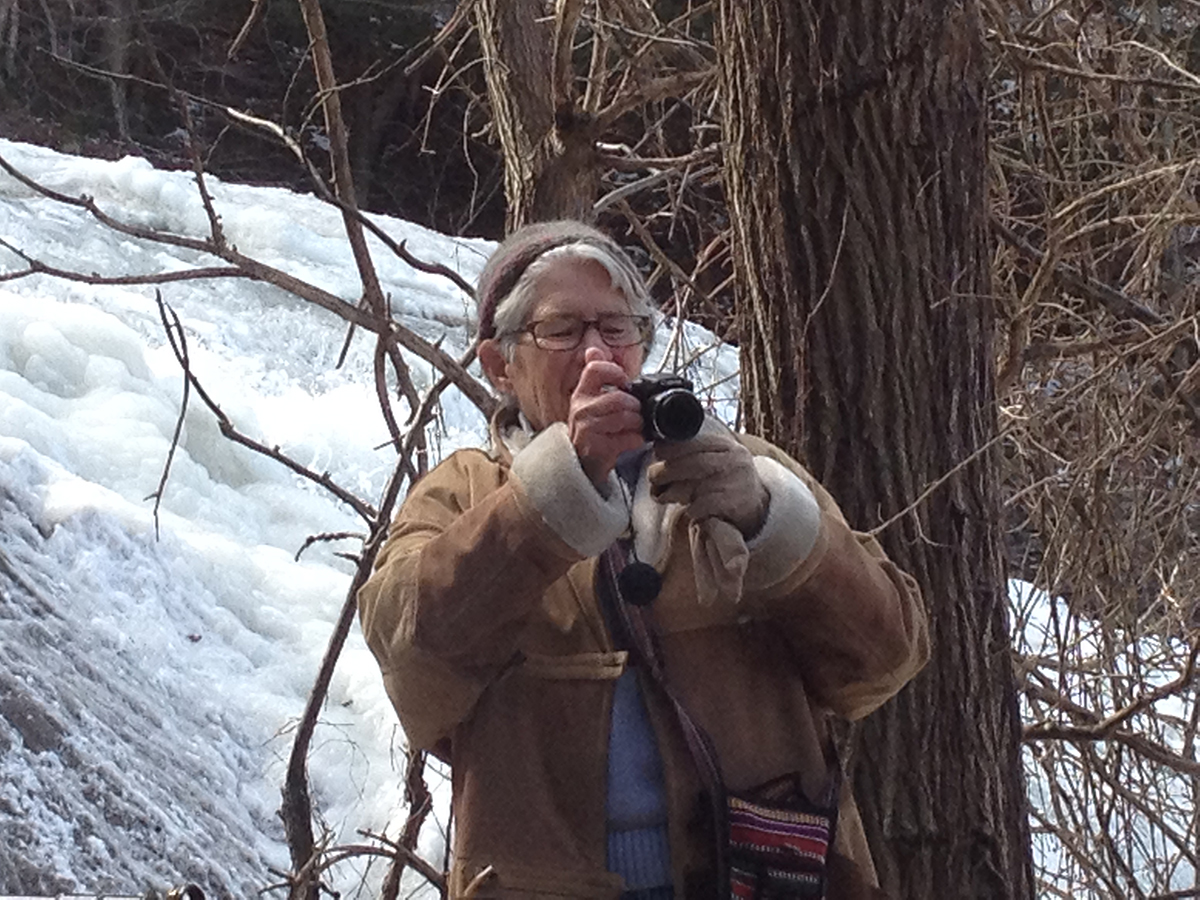Papers of pioneering lesbian photographer given to library
By Melanie Lefkowitz

Honey Lee Cottrell, a pioneering photographer of lesbian erotica, dedicated her life to making lesbian lives visible, and one of her final acts was to give her papers to the Cornell University Library Human Sexuality Collection to ensure their place in history.
“The whole notion of people who were unseen was something that motivated her throughout her life, from the time she came out in 1966. She didn’t see images of lesbians so she wanted to create them,” said Brenda Marston, curator of the Human Sexuality Collection, who visited Cottrell at her home two weeks before her death and filmed Cottrell reflecting on her work. “Part of her intent all along was to leave a record.”
Cottrell, who was 69, revolutionized the female nude, validated women’s right to pleasure and opened possibilities for women to see themselves and their desires in new ways. She co-authored “I Am My Lover,” an iconic 1978 feminist book celebrating masturbation. In 1984, she co-founded the feminist pornography magazine On Our Backs – also now part of Cornell’s collections – and proposed a “Bulldagger of the Month” centerfold for the first issue.
The idea, she explained, was “to stand this ‘Playboy’ centerfold idea on its head from, I would say, a feminist perspective … what would I do if I was a centerfold and how can I reflect back to them our values?”
At Cornell, Cottrell’s collection – which includes extensive photo archives of the world of 1970s and 1980s Bay Area sex radicals, self-portraits and vision statements for feminist publications – will add to a growing body of work of other trailblazing feminists and gay activists. These archives provide a valuable historical record and aid in the understanding of the evolution of gay rights and sexual identity, Marston said.
“Women’s control of our own bodies and desires is absolutely central to the feminist movement and cultural effort of the past 50 years,” Marston said.
Cottrell’s photographs were part of the Human Sexuality Collection’s 2014 “Speaking of Sex” exhibition, and earlier this year, Marston contacted her seeking a copy of “I Am My Lover,” which is out of print and hard to find. The pair made plans to meet in the months ahead, but by the time Marston met her in California earlier this month, Cottrell’s cancer was untreatable and she was in hospice care.
Although she was weak, Cottrell mustered the energy to visit her storage space and help sort through her work, and was pleased to preserve it alongside the papers of feminist author Susie Bright and the records of On Our Backs, among other documents, Marston said. She died Sept. 21.
“Honey Lee was always aware of history,” Marston said. “She liked the idea that all the fun and rabble-rousing they did in San Francisco is now being recognized as important by an East Coast Ivy League school.”
Melanie Lefkowitz is staff writer, editor and social media coordinator for Cornell University Library.
Media Contact
Get Cornell news delivered right to your inbox.
Subscribe